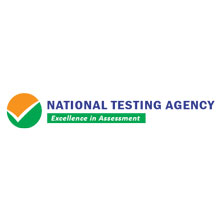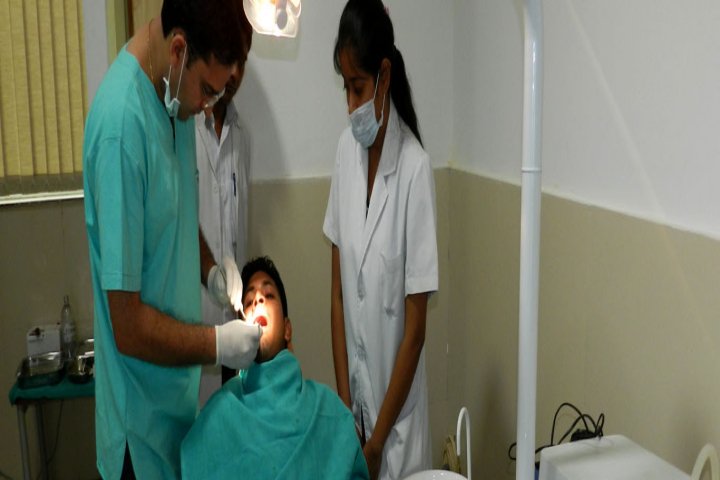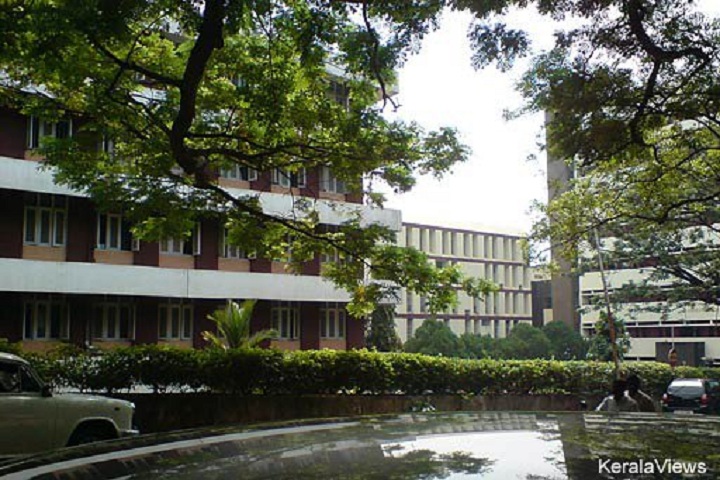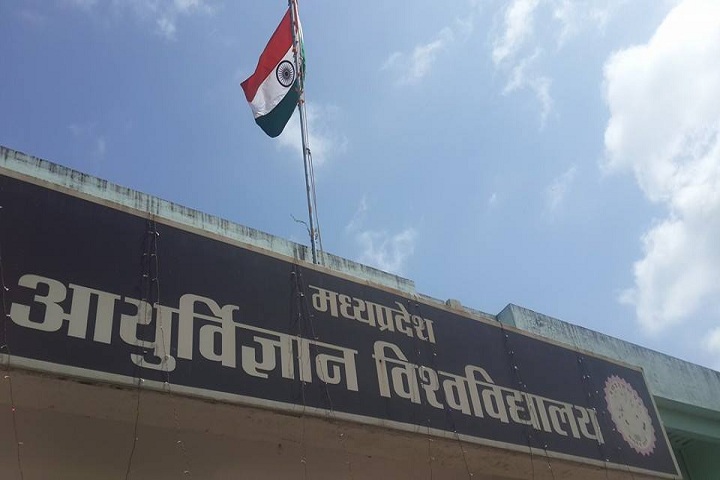What is Clinical Pathology
Pathology has two major branches namely clinical pathology and anatomical pathology. Clinical pathology course deals with the identification of microbes from living samples. The samples can include body fluids like blood, urine, faecal matter, saliva and so on. A person practising clinical pathology is responsible for observing the collected body sample and also isolating or identifying microbes. Microbes like bacteria, virus, fungi and protozoa are responsible for causing infection and harming the system of the host. These microbes soon find their way into the bloodstream of the host.
Clinical pathology course helps a student to understand the intricacies of microbial functions inside a living body. A number of colleges and institutions across India offer clinical pathology courses. Clinical pathology is different from anatomical pathology as the latter involves the analysis of tissues extracted from the body. In anatomical pathology, the structure of the tissues is the point of focus. On the other hand, the significance of clinical pathology lies in the proper isolation of microbes. This can entail destroying the physical structures of the tissues.
Clinical pathology courses are designed to provide maximum help to the physicians in the diagnosis of diseases and determine appropriate treatment protocols. Given below is detailed information on this important course that is crucial to the entire healthcare industry.
Clinical Pathology- Degrees and Levels
Pathology institutes in India or medical colleges offering clinical pathology courses teach this subject only at the postgraduate level. These courses are like:
Diploma level: This is a 2-year course that students can take up after graduating in any branch of life sciences or biology, i.e. after doing B.Sc in biosciences. The admission is based on merit and entrance exam results.
PG diploma level: This is a 1-year course consisting of 2 semesters. Aspirants can take this up after completing their MBBS degree from a recognised medical college with at least 55% of marks in the aggregate.
Clinical Pathology- Minimum and Maximum Duration
The full length of a clinical pathology course is of 2 years or 24 months. During this timeframe, the candidate is required to complete and clear all the required credits of the course. In case the candidates fail to complete the course in 2 years, universities allow an extended period of time to students to clear their backlog. The maximum duration of the course can last from 3-4 years or 36 to 48 months.
Eligibility Criteria (UG & PG) of Clinical Pathology
To apply for the course of clinical pathology and getting admission in clinical pathology institutes the candidate must have the following requirements.
1. The candidates have to pass the entrance exam as held by the colleges also
2. The interested candidate should have a degree in any of the following courses:
B. Sc in biotechnology
B. Sc in life sciences
B. Sc in biology
B. Sc in microbiology
B. Sc in biochemistry
3. A candidate is required to secure a graduation degree in any of the above courses from a recognised university to be eligible to enroll for clinical pathology courses.
4. Apart from this, certain colleges also require candidates to qualify additional entrance exams to be eligible for the course.
Admission Criteria of Clinical Pathology Courses after Class 12
The exact admission criteria of the clinical pathology programme depend on the rules of the specific institutions. The admission can be merit-based or entrance exam-based or both. For merit-based admission, the marks scored in the graduation level course as well as in the 10+2 exams are considered. The candidate must score at least 55% in the qualifying exam. Some colleges also hold entrance examinations which a candidate must qualify for securing admission. In some of these colleges, both the entrance exam results, as well as the merit of their graduation course and 10+2 results, are taken into consideration.
Entrance Examinations for Clinical Pathology Courses
The entrance exam for admission into the diploma course depends on the specific institution. Some colleges may also conduct admissions based on marks of previous courses without any entrance test. Some of the entrance exams conducted for admission into clinical pathology diploma are:
Datta Meghe Institute of Medical Sciences Entrance Exam
Gajra Raja Medical College Entrance Exam
Christian Medical College Entrance Exam
Armed Forces Medical College Entrance Exam
Fees and Expenses of Clinical Pathology Courses
The average course fee can be in the range of Rs.10,000 to Rs.8 lakhs. The minimum fee required for the diploma course is Rs.6,000. The Government Medical College in Surat and the B. J. Medical College in Ahmedabad offers the diploma for a course fee of Rs.6,000 only. Some government colleges in India can charge as much as Rs.19 lakhs for 2 years’ diploma course of clinical pathology. This is the maximum fee for clinical pathology courses in government colleges. Apart from this, private colleges also offer clinical pathology courses. The maximum fee for the private college is Rs.42 lakhs.
College Predictors VIEW ALL
Scope of Clinical Pathology in India and Abroad
In India, clinical pathology is a very popular and important course in medical biology. The course of clinical pathology is very important for medical diagnostics and scientific research. Due to rapid development in the use of advanced tools and techniques in the medical field, new horizons in the clinical pathology field have been expanding. Clinical pathology plays a pivotal role in India’s healthcare system one reason being the country’s huge population. To provide affordable yet quality healthcare services to people from all the social strata, it is important that the private diagnostic centres, as well as laboratories in government hospitals, operate with full efficiency. This will ensure a steady requirement of qualified clinical pathologists in the sector at any given point in time.
The demand for clinical pathologists outside India is equally high; especially, in the commonwealth countries. Hospital laboratories and pathology centres are always in need of them as the population is rising and so are the ailments. The UK healthcare system under National Health Services, for example, offers a respectable position to clinical pathologists. Besides full-time employment, candidates after completing a diploma course in clinical pathology can start their own private practice at pathology labs. They can go for research also, in any of the fields of pathology or join a medical college as faculty. Thus, both in India and abroad, a career in clinical pathology is considered to be highly rewarding.
Course Fees Clinical Pathology
| Minimum Fees | Maximum Fees | |||
|---|---|---|---|---|
| Private | Government | Private | Government | |
| UG | ||||
| PG | ||||
| DOCTORAL | ||||
| DIPLOMA | ||||
Course Subjects
Clinical pathology diploma is a 2-year long course with special emphasis on the practical aspects of the course subjects. The list of clinical pathology subjects that are taught is:
Theory
Morbid anatomy and histopathology
Practical training
Haematology and blood banking
Microbiology and serology
Clinical and Chemical Pathology
Careers in Clinical Pathology
Clinical pathologist, lab executive and medical transcriptionist are some of the most common and widely available jobs after completion of clinical pathology courses. In addition, one can get a job as a clinical manager and medical examiner too. Those who want to thrive in the academic world can qualify exams and get placed as lecturers or professors in institutions. Some unique job positions available after the clinical pathology course are those of cytotechnologist, dermatopathologist, and forensic technician etc. A more detailed description of the job profiles has been added in the following sections.
Upcoming trends
Clinical pathology is a field that is undergoing a dynamic revolution through the introduction of groundbreaking technology. In this section, we shall discuss the major trends in the clinical pathology field.
Automation in clinical pathology:
Automation in sample processing and data collection has started to revolutionize the clinical pathology field. In a recent trend due to the increase in safety concerns, there is a spike in the number of video consultation and online testing services. This has seen an increase in demand for automated services in some of the subparts of the CP field.
High throughput assays
High throughput assays make it possible for many samples to be tested at the same time. This reduces the time needed for computing results and performing tests.
Technological advances
Due to an increase in understanding in recent years and knowledge about biological systems and its integration with engineering and other sciences, clinical pathology is set to undergo massive changes. Some examples of such are using PCR for microbial analysis of samples, using nanotechnology in body fluid analysis, using microbial typing to identify suspects in criminal cases and so on.
Job Profiles and Top Recruiters
The major available jobs after the completion of clinical pathology courses are mentioned below:
Clinical pathologist: A clinical pathologist has an extremely crucial job in Medical science. A clinical pathologist has to carefully examine body liquid, blood, bone marrow and urine.
Lab executive: Lab executives play a vital role in maintaining good laboratory practices and ensuring the proper functioning of the lab. The main role of a lab Executive is to maintain the medical laboratory equipment and tools of the specific lab. This means performing tests which can withhold quality standards. A lab executive must be thorough with troubleshooting procedures so that the tests can be performed without much hassle. The duties of a lab assistant should also include ensuring quality in test performance, developing an operation, certifying and monitoring instrument performance, ensuring staff compliance, looking over proper instrument handling, arranging samples and raw materials, arranging equipment and tools replacements, repairing and so on.
Medical transcriptionist: As the name transcriptionist suggests, the job of a medical transcriptionist is mainly focused on transcribing audio in the medical field. To elaborate, the job of a Medical Transcriptionist is to carefully listen to the recorded audio clips provided by a physician or any other healthcare experts. The medical transcriptionist is also required to interpret as well as transcribe the oral work or audio recording into understandable diagnostic test results. The transcription can also be interpreted to referral letters, operative reports and other documents.
Medical examiner: A professional Medical Examiner’s job is centred on forensic science. The job of a medical examiner is to provide specialized training in forensic pathology. A medical examiner has to be very suited for performing efficient inspection of organs. This includes performing autopsies of organs, tissue, and bodily liquids. All this is done to examine the reason for death for legal purposes.
Clinical manager: One of the most common job options for CP diploma holders is to become a Clinical Manager. A Clinical Manager is majorly responsible for managing the clinical staff, the administrative staff, the professional staff as well as the clerical staff. The job of a clinical manager also includes supervising the recruitment, development, managing day-to-day management. Clinical Managers are responsible for the appraisal of staff. They are also meant to supervise the development and implementation of rules and regulations and directives to ensure proper working of the clinical laboratory. Some clinical Managers are also responsible for attending meetings and setting and monitoring budgets.
The top recruiters for CP course diploma holders are:
1) Apollo Hospitals
2) National Institute of Health
3) Armed Forces Institute of Pathology
4) Food and Drug Administration
5) All India Institute of Medical Sciences
6) Dr Lal Path Labs
7) Intelligence Bureau
8) Central Bureau of Investigation
9) Asian Institute of Medical Sciences, etc.
After completion of this diploma course on CP, Pathologists can start their career in research and teaching fields. Candidates can opt for pursuing a PhD degree in clinical pathology after completing post-graduation.
Diploma in clinical pathology course provides a good market for jobs in India as well as abroad.
Average Salary
The exact salary after completion of the clinical pathology diploma will depend on the job secured by the candidate and also the organisation that provides the job. However, the expected starting salary can vary from Rs.2 lakhs to Rs.10 lakhs. The average annual income ranges up to Rs.10 lakh per annum.
The jobs of a medical examiner and a medical transcriptionist pay a minimum salary of Rs.2 lakhs.
Required Skillset for Clinical Pathology
Knowledge of microbiology, haematology, parasitology: One of the basic skills required for becoming successful in clinical pathology practice is having sufficient knowledge in these subjects of biology and hands-on training in different lab procedures.
Criticism acceptance: The candidate must also possess the ability to accept criticism. There may be instances where other people criticize the individual for mistakes made. This must not deter the person but instead inspire for better performance.
Hard Working ability: Due to the immense workload of investigative procedures in the laboratory, candidates who are capable of working well under pressure can attain the goals more swiftly.
Thinking and reasoning skills: Clinical pathology is a field in which candidates must have rationality in thinking. The candidate must have enough knowledge to derive accurate results using their reasoning skills.
To be thorough and pay attention to detail: The test of samples and their results must be observed with great attention. A minor mistake can result in the wrong conclusion. This can lead to major damages.
Analytical skills: The candidate must know how to interpret results and also identify mistakes in the test results. This skill will also help one to chalk out viable solutions to problems that may arise at any point in time.
In line with the needs of medical practitioners: A clinical pathologist must have the competency and knowledge to contribute to the diagnostic efforts of practitioners in various branches of medicine.
Compassion: The candidate must be aware of the healthcare needs of people from all sections of society and be compassionate while providing pathological services to them.
Popular Online Medicine Courses and Certifications
Course Curriculum for Clinical Pathology
The outline of a standard curriculum of a clinical pathology PG diploma course is as follows:
Theory:
Basic sciences
General pathology
Systemic pathology
Haematology
Histopathology
Transfusion medicine
Cytology
Microbiology
Immunology and serology
Chemical pathology
Recent advances
Practical:
Surgical pathology
Cytopathology
Autopsy pathology
Research and dissertation
Periodic publication
Written assessment and viva
Students also liked
- Online Degree and Diploma Courses
- Online Free Courses and Certifications
- Online Short Term Courses and Certifications
- Online Certification Courses
- View List of all Online Courses and Certifications
- Top Certification Course Providers
Popular Clinical Pathology Entrance Exams in India
Frequently Asked Questions (FAQs)
Question: What is the average fee structure of a diploma in clinical pathology course?
Answer :
In public colleges, the average fee ranges around Rs.4.98 lakhs and in private colleges, the fee is somewhere around Rs.11.6 lakhs.
Question: What are the entrance exams for a PG diploma in clinical pathology?
Answer :
NEET, KUK entrance exam and NEET PG are the three main examinations one of which the aspirants have to clear to get admission into PG diploma course of clinical pathology. The examination will be followed by personal interviews as arranged by individual colleges.
Question: Which are the top colleges in India offering a PG diploma in clinical pathology?
Answer :
The top colleges offering a PG diploma in clinical pathology are:
Government Medical College, Bhavnagar
Amrita Vishwa Vidyapeetham, Kochi
Dr DY Patil Medical College, Mumbai
Government Kilpauk Medical College, Chennai
MJP Rohilkhand University, Bareilly
Dr Vaishampayan Memorial Government Medical College, Solapur
Himalayan Institute of Medical Sciences, Dehradun
NRI Medical College, Guntur
Rajiv Gandhi Paramedical Institute, New Delhi
Dr MGR Medical University, Tamilnadu
JRN Rajasthan Vidyapeeth University, Udaipur
Question: Which are the top colleges for CP courses in India?
Answer :
The top colleges offering CP course in India are:
Christian Medical College, Vellore
Madras Medical College, Chennai
Gajra Raja Medical College, Gwalior
Government Medical College, Surat
Datta Meghe Institute of Medical Sciences, Maharashtra
Bangalore Medical College and Research Institute, Bangalore
Armed Forces Medical College, Maharashtra
B. J. Medical College, Ahmedabad
Kasturba Medical College, Mangalore
Osmania Medical College, Hyderabad
King George’s Medical College, Lucknow
Institute of Post Graduate Medical Education and Research, Kolkata
Question: What are the salaries of different jobs after clinical pathology course completion?
Answer :
The top available jobs that one can get after studying clinical pathology and their respective salaries are tabulated below:
Job position | Salary (per annum) (tentative) |
Pathologists | Rs.9-10 lakhs |
Lab executive | Rs.4-5 lakhs |
Medical transcriptionist | Rs.2-3 lakhs |
Medical examiner | Rs.2-3 lakhs |
Clinical manager | Rs.4-5 lakhs |

















